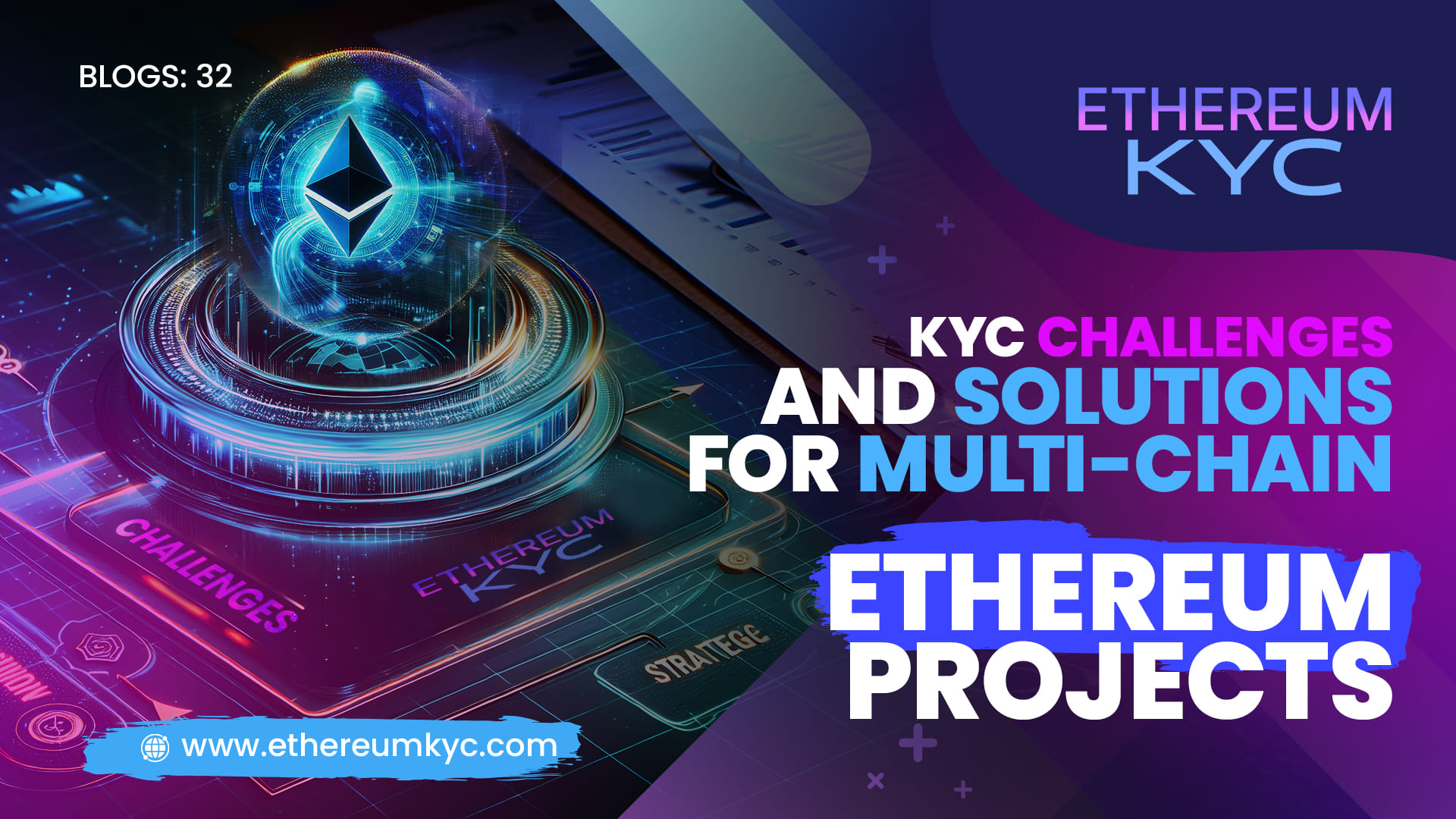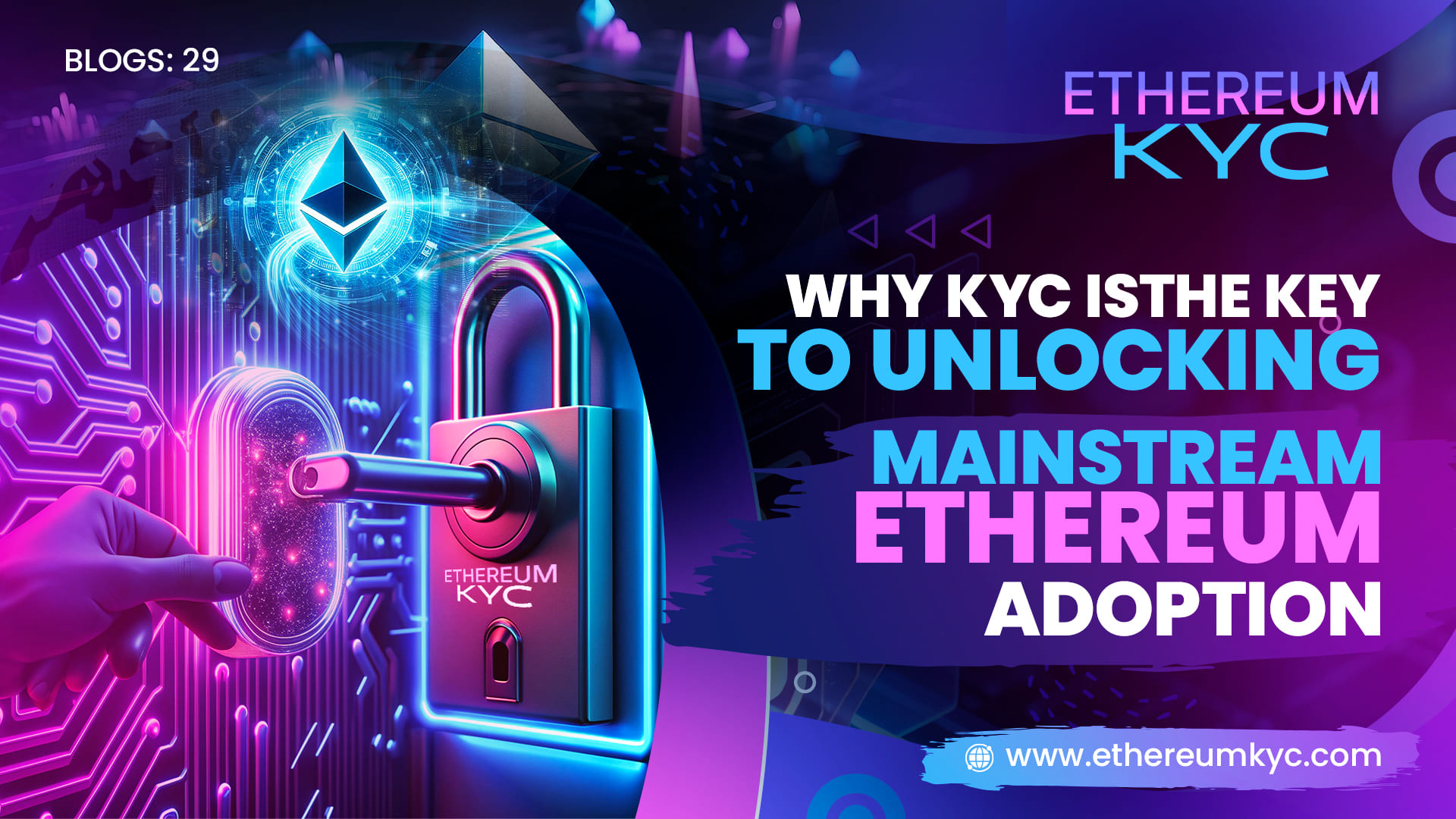December 22, 2024
How KYC Can Enhance Cross-Border Investments in Ethereum Projects
As Ethereum continues to dominate the blockchain ecosystem, it has become a global hub for cross-border investments in decentralized projects. However, navigating international regulatory landscapes presents unique challenges for project owners and investors alike. Know Your Customer (KYC) procedures have emerged as a critical solution to enable secure, compliant, and efficient cross-border investments in Ethereum projects.
This blog explores how KYC enhances cross-border investments, fostering a trusted environment for global blockchain growth.
The Rise of Cross-Border Investments in Ethereum
Ethereum’s global reach allows investors from various countries to participate in token sales, DeFi platforms, and decentralized applications (dApps). This international participation drives liquidity, innovation, and project adoption. However, without proper regulatory alignment, cross-border transactions can face hurdles such as fraud risks, non-compliance, and operational inefficiencies.
Challenges in Cross-Border Investments
- Regulatory Variability: Different countries have distinct compliance standards, creating complexity for both investors and project owners.
- Fraud and Scams: Cross-border transactions are vulnerable to bad actors exploiting anonymity.
- Trust Deficit: Without clear accountability, investors may hesitate to participate in foreign projects.
How KYC Bridges the Gap
1. Ensuring Compliance Across Borders
KYC enables Ethereum projects to align with international regulations, fostering trust among investors worldwide. By verifying the identities of project owners and investors, KYC ensures adherence to anti-money laundering (AML) laws and other compliance standards.
2. Reducing Fraud Risks
KYC minimizes the risk of fraud by verifying the legitimacy of project owners and contributors. For cross-border investments, this layer of security reassures investors about the authenticity of the project.
3. Enhancing Transparency
Global investors are more likely to participate in Ethereum projects when they have confidence in the transparency and accountability of the project team. KYC ensures that all stakeholders operate within a trusted framework.
4. Facilitating Institutional Investments
Institutional investors often have strict compliance requirements. Ethereum projects with robust KYC processes are better positioned to attract institutional funding, especially for cross-border ventures.
Benefits of KYC for Cross-Border Ethereum Projects
1. Wider Investor Base
With KYC, Ethereum projects can confidently attract investors from multiple jurisdictions, expanding their reach and liquidity.
2. Streamlined Token Sales
KYC simplifies the process of verifying investor eligibility, making token sales more efficient and compliant across borders.
3. Improved Reputation
Projects that adopt KYC are perceived as credible and professional, gaining trust from the global blockchain community.
Real-World Applications
- Initial Coin Offerings (ICOs): Many Ethereum-based ICOs require KYC for participation, ensuring legal compliance for cross-border fundraising.
- Decentralized Finance (DeFi): Platforms use KYC to verify users and secure international liquidity pools.
- NFT Platforms: Global NFT markets implement KYC to verify creators and buyers, fostering a secure environment.
Balancing Privacy and Compliance
While KYC is essential for cross-border investments, maintaining privacy is equally important. Blockchain projects are adopting innovative solutions like zero-knowledge proofs and decentralized identity systems to ensure user data security while meeting compliance requirements.
Best Practices for Implementing KYC
- Adopt a Global Compliance Approach: Partner with KYC providers experienced in international regulations.
- Leverage Blockchain-Based KYC Solutions: Use decentralized technologies to streamline verification while protecting privacy.
- Educate Investors: Clearly communicate the benefits of KYC to encourage participation in cross-border projects.
Conclusion
KYC is a transformative tool for enabling cross-border investments in Ethereum projects. By ensuring compliance, reducing fraud risks, and fostering transparency, KYC opens the door to a broader investor base and greater opportunities for Ethereum’s global ecosystem. For project owners, adopting KYC is not just about meeting regulatory requirements but also about building trust and attracting long-term, cross-border support.






